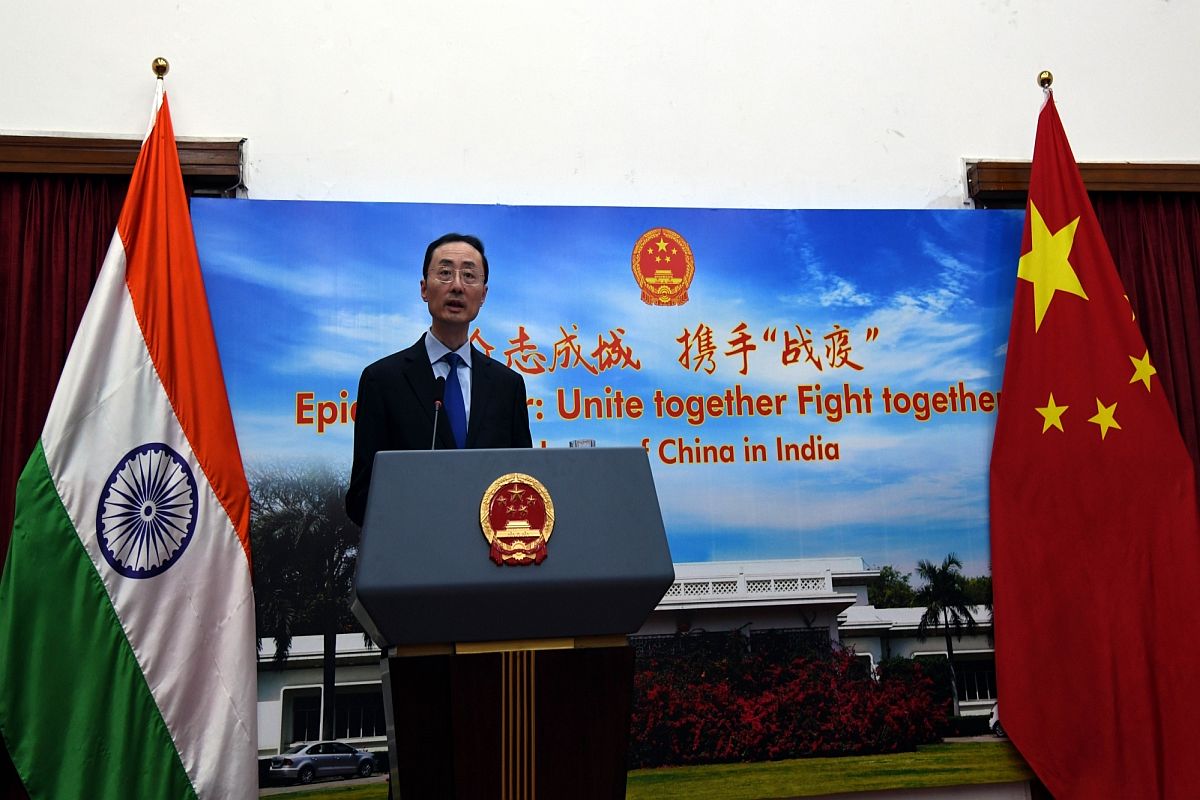Manipur looted weapons issue: Army, security forces recover INSAS rifles, guns, pistols, mortars, IEDs
Defence spokesman Lt. Col Amit Shukla said security forces also destroyed several illegal bunkers in the Kangpokpi district.
Chinese ambassador to India Sun Weidong said that Beijing ‘advocates win-win cooperation and opposes a zero-sum game’ and added, ‘Our economies are highly complementary, interwoven and interdependent.’

Chinese Ambassador to India Sun Weidong (File Photo: IANS)
In the wake of diplomatic reactions to the Chinese aggression along the Line of Actual Control (LAC) in eastern Ladakh, Beijing on Thursday warned New Delhi against a “forced decoupling” of its economies.
Chinese ambassador to India Sun Weidong said China was not a strategic threat to India and that the “general structure that we can’t live without each other remains unchanged”.
Advertisement
Taking to Twitter, the envoy said, “To move China-India relations forward, I believe that we need to straighten our views on several key issues. First, China is committed to peaceful development, and is not a “strategic threat” to India.”
Advertisement
“Safeguarding world peace and promoting common development has always been the fundamental goal of China’s diplomacy. Since PRC founding 70 years ago, we have always pursued good-neighborly friendship, sought development with our neighbours and worked to make pie of cooperation bigger,” he added.
In another tweet, the Chinese envoy said that Beijing “advocates win-win cooperation and opposes a zero-sum game” and added, “Our economies are highly complementary, interwoven and interdependent. Forced decoupling is against the trend and will only lead to a ‘lose-lose’ outcome”.
“Our economic and trade exchanges should be positive cycle of mutual accomplishment. It should not become a knockout nor a zero-sum game deliberately suppressing others. We should recognize mutually beneficial and win-win nature and jointly create open, fair, just business environment.”
The statement comes after the Indian government banned 47 more Chinese apps from operating in the country, nearly month after blocking 59 mobile applications.
The newly banned ones were largely clones of the previously banned apps.
The development came days after the Ministry of Electronics and Information Technology (MeitY) directed the 59 banned apps to strictly adhere to the orders or face serious action in case of violation.
The Ministry has written to all the companies concerned and said that making the apps available, directly or indirectly, would violate IT Act and other laws.
The Government had on June 29 banned 59 Chinese apps, including TikTok, Shareit, UC Browser and Xiaomi’s Mi Community over national security concerns in a diplomatic reaction to the Chinese aggression, days after the brutal face-off between Indian and Chinese troops at Galwan valley in eastern Ladakh on June 15.
The Ministry of Electronics and Information Technology, invoking it’s power under section 69 A of the Information Technology Act read with the relevant provisions of the Information Technology (Procedure and Safeguards for Blocking of Access of Information by Public) Rules 2009 and in view of the emergent nature of threats decided to block 59 apps since in view of the information available they are “engaged in activities which are prejudicial to sovereignty and integrity of India, defence of India, the security of state and public order”.
Upon receiving of recent credible inputs that such Apps pose threat to sovereignty and integrity of India, the Government of India has decided to disallow the usage of certain Apps, used in both mobile and non-mobile Internet-enabled devices, a ministry statement read.
The Government also asserted that this move will safeguard the interests of crores of Indian mobile and internet users.
Following this, China had reached out to India, expressing anxiety about the ban on 59 popular Chinese apps.
Beijing’s mission in India also issued a strong statement accusing India of indulging in “discriminatory practices”.
Advertisement